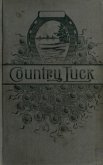In "Macaria," Augusta J. Evans weaves a richly textured narrative that explores themes of faith, redemption, and the interplay between social duty and personal desire. Released in 1864, during a transformative era in American literature, the novel employs a mix of lyrical prose and Gothic elements, creating a compelling backdrop for the moral and emotional dilemmas faced by its characters. Set against the socio-political turmoil of the Civil War, Evans crafts a poignant exploration of the role of women in society, revealing the tension between conformity and individuality through her heroine's journey. Augusta J. Evans was a pioneering figure in 19th-century American literature, known for her deeply sentimental works that resonated with contemporary readers. A Southern woman from Alabama, Evans's own experiences and the context of the war influenced her writing, allowing her to infuse her characters with a sense of palpable struggle infused with moral consciousness. Her mastery in portraying complex emotional landscapes underlies her significant contribution to the development of the American novel, particularly concerning women's roles and societal expectations. "Macaria" is a must-read for anyone interested in exploring the intersections of gender, morality, and social issues during a pivotal historical moment. Evans's work invites readers to engage with profound questions about identity and duty, making it a relevant and thought-provoking read for modern audiences.
Dieser Download kann aus rechtlichen Gründen nur mit Rechnungsadresse in A, B, BG, CY, CZ, D, DK, EW, E, FIN, F, GR, H, IRL, I, LT, L, LR, M, NL, PL, P, R, S, SLO, SK ausgeliefert werden.









